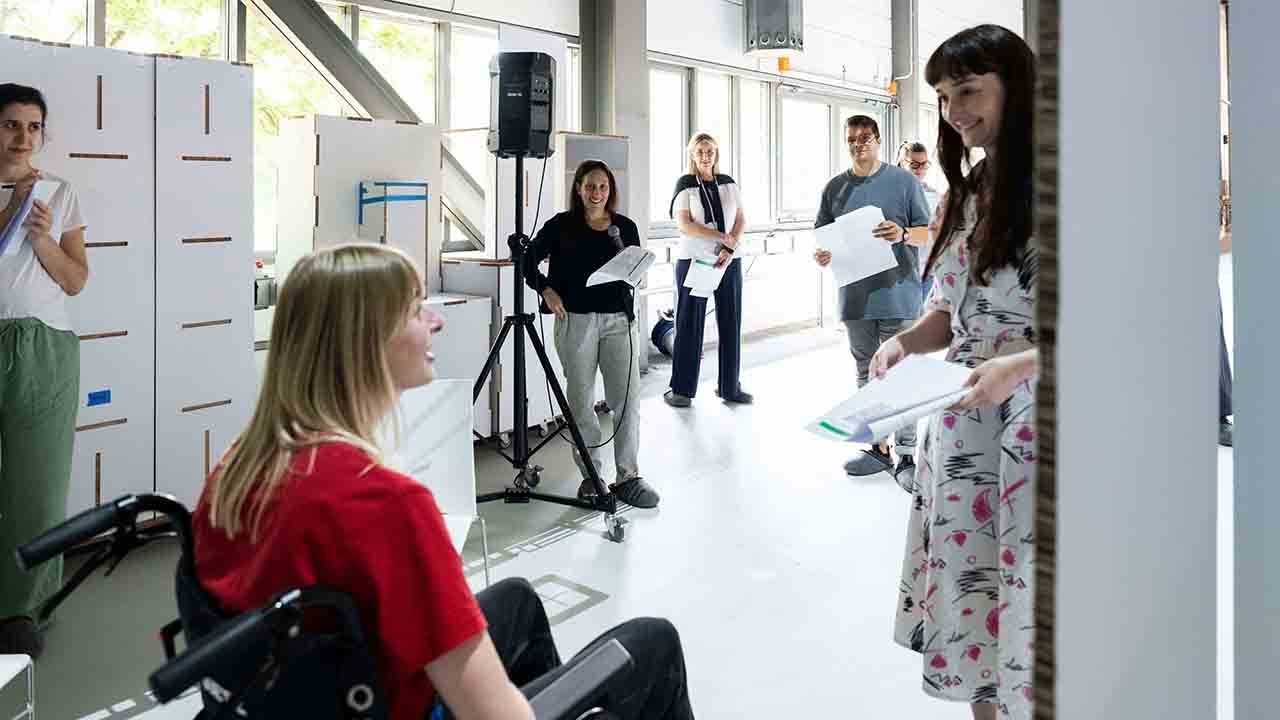
Hospital design and care delivery
First professional development programme held at the SCDH
Nora Colman welcomed architects, planners, hospital and building managers to the SCDH’s first advanced training offering. Colman is an Assistant Professor in Paediatrics and a practicing physician in Paediatric Critical Care Medicine at Children’s Healthcare of Atlanta. Her research focuses on the influence of design on patient safety. Nora Colman also has extensive experience in largescale simulation projects.
In her opening presentation, Nora Colman addressed the three most important and interlinked aspects of hospital design: patient safety, operational design and architectural design. After a number of fascinating discussions in small groups and plenary sessions, the participants got to use the largest extended reality simulation area on the second day to familiarize themselves with the simulation method and to evaluate and optimize spaces and processes on a 1:1 scale.
Although the workshop and discussions with all of the participants repeatedly highlighted national differences with regard to the challenges involved in the planning and design of new hospital buildings and conversions, it became clear that the construction of healthcare facilities, especially hospitals, is a very complex process everywhere. A clash of interests and internal politics often play a role. Overcoming this complexity requires the involvement of all stakeholders, calling for a planning approach that represents a continuous dialog and decision-making process. Moreover, hospital management needs to be trained to better understand the architectural design process, and architects need to better understand hospital operations. Simulations (both low-fidelity and high-fidelity mock-ups) followed by an analysis using a structured evaluation framework provide a platform for the different perspectives of the stakeholders and enable a joint decision-making process. They also reduce costly adjustments after the building is completed, lead to optimal operating processes and increase patient safety.
In addition to the inherent complexity of hospital planning, digitalization, demographic trends, the shortage of specialists and economic challenges are driving change in the healthcare sector. Telemedicine, virtual hospitals, care@home and the role of artificial intelligence in medicine are changing the requirements for hospital operations of the future, their design and patient safety. The combination of financial pressure, design-to-cost strategies and the need for new technologies means that innovation experts should be involved in the planning phase.
Output category
News
Area of activity
Objects and environment
Offering
Professional development
Platform
Extended-Reality Simulation Area







